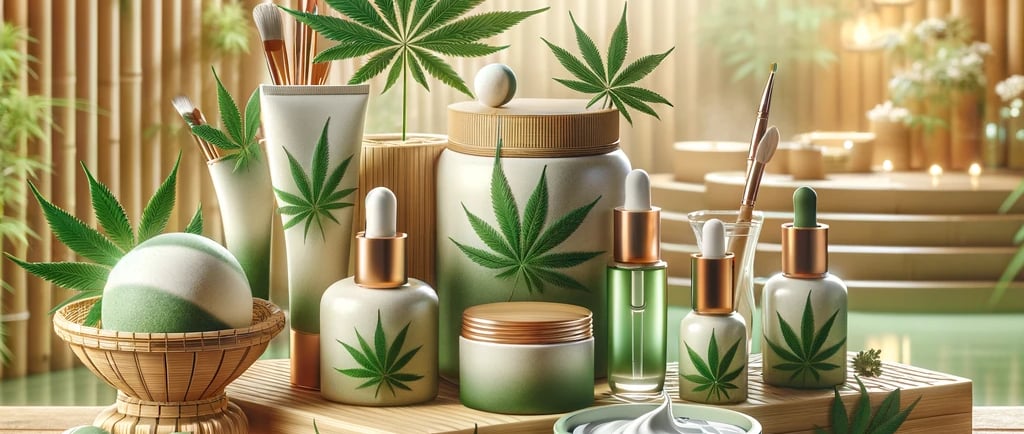Cannabis in Cosmetics and Skin Care: The Green Revolution
The intersection of cannabis and the cosmetics industry marks a fascinating evolution in how we perceive and utilize this versatile plant. Beyond its recreational and medicinal applications, cannabis, particularly in the form of CBD (cannabidiol), is revolutionizing the skin care and beauty markets. This article delves into the burgeoning world of cannabis-infused cosmetics, exploring the science, benefits, challenges, and future prospects of cannabis in beauty products.
CANNABIS GUIDE
4/7/20241 min read


The Rise of Cannabis in Cosmetics
The global acceptance and legalization of cannabis have paved the way for its incorporation into various industries, with cosmetics and skin care being among the most innovative adopters. Cannabis, especially CBD, has gained recognition for its anti-inflammatory, antioxidant, and moisturizing properties, making it an attractive ingredient in beauty products.
Scientific Basis for Cannabis in Skin Care
CBD's therapeutic properties stem from its interaction with the body's endocannabinoid system, which regulates various functions, including pain, mood, and skin health. Research suggests that CBD can help treat conditions like acne, eczema, and psoriasis, owing to its anti-inflammatory qualities. Moreover, its antioxidant properties may combat aging by reducing free-radical damage.
Product Innovation and Consumer Demand
The cosmetics industry has seen a surge in cannabis-infused products, ranging from facial creams and serums to lip balms and bath bombs. Consumers' growing interest in natural and plant-based ingredients has fueled this trend, with cannabis-based products appealing to those seeking alternative beauty regimens. Brands are continually innovating, combining CBD with other beneficial botanicals to enhance product efficacy.
Challenges and Regulatory Landscape
Despite the popularity of cannabis-infused cosmetics, the industry faces challenges, particularly concerning regulation. The legal status of CBD varies globally, affecting product formulation and marketing. In regions where cannabis is legal, regulations regarding CBD concentration and claims about health benefits can differ, complicating compliance for manufacturers.
The Role of Hemp in Cosmetics
Hemp seed oil, derived from the seeds of the cannabis plant, is also a prominent ingredient in skin care products. Unlike CBD, hemp seed oil is rich in fatty acids but does not contain significant levels of cannabinoids. Its moisturizing properties make it ideal for products aimed at improving skin barrier function and hydration.
Consumer Education and Market Potential
As the market for cannabis-infused cosmetics grows, so does the need for consumer education. Misconceptions about the effects of CBD and hemp-derived products persist, highlighting the importance of clear, evidence-based information. Educating consumers about the benefits, safety, and use of cannabis-infused beauty products is crucial for the industry's continued growth.
Future Directions
The future of cannabis in cosmetics looks promising, with ongoing research likely to unveil more about its skin health benefits. The potential for new formulations, targeting a broader range of skin concerns, and the expansion of the market into regions with changing cannabis laws, suggest a vibrant trajectory for cannabis-infused beauty products.
Conclusion
Cannabis has carved a niche in the cosmetics industry, driven by its therapeutic properties and consumers' desire for natural, effective beauty solutions. As research advances and regulatory frameworks evolve, cannabis-infused cosmetics are set to play a significant role in the future of skin care and beauty, marking a green revolution in how we approach personal care.
